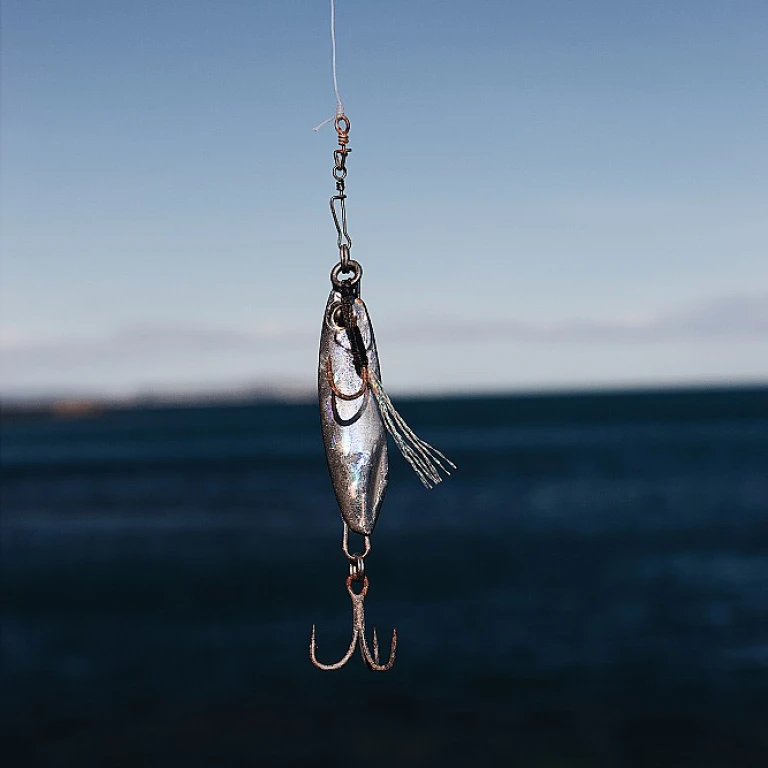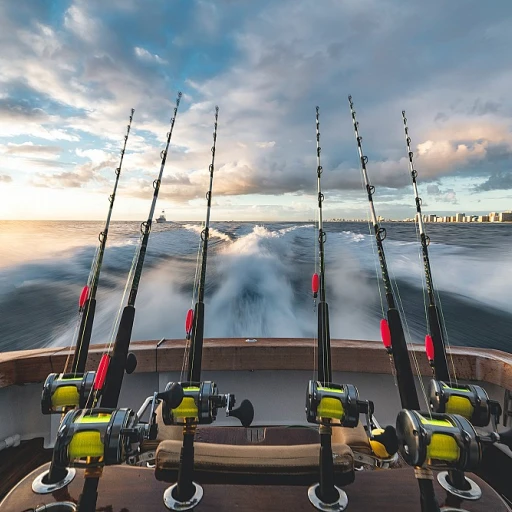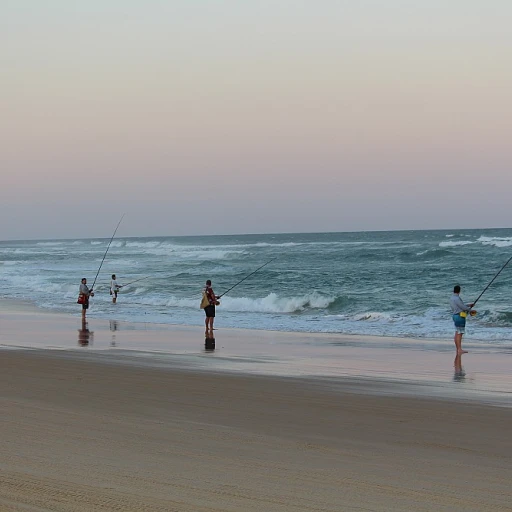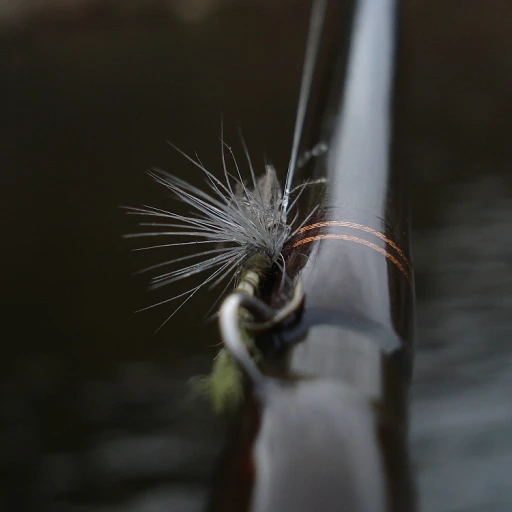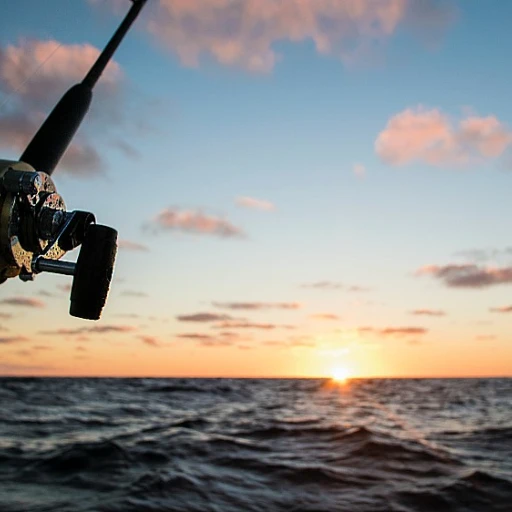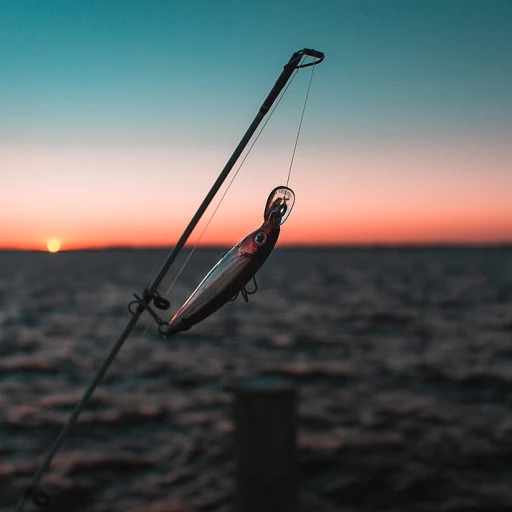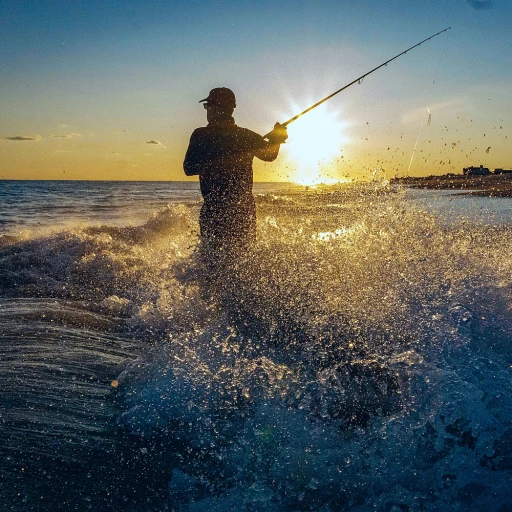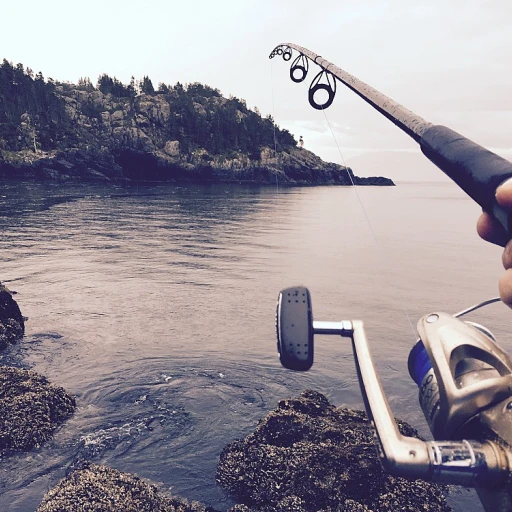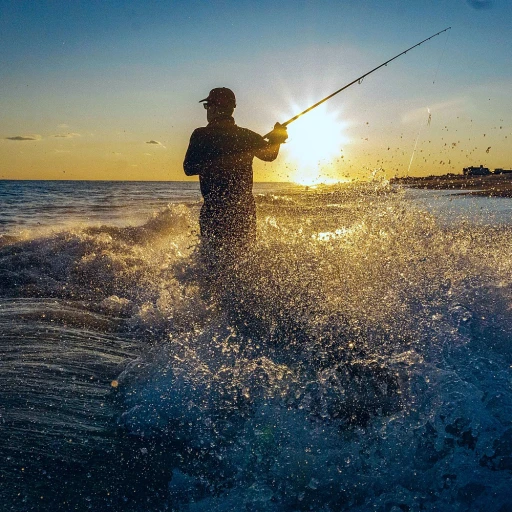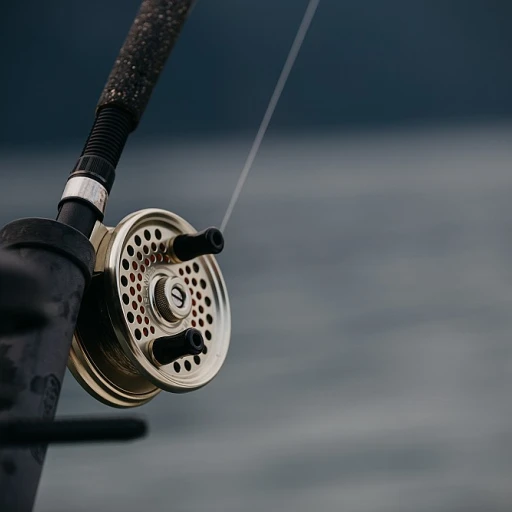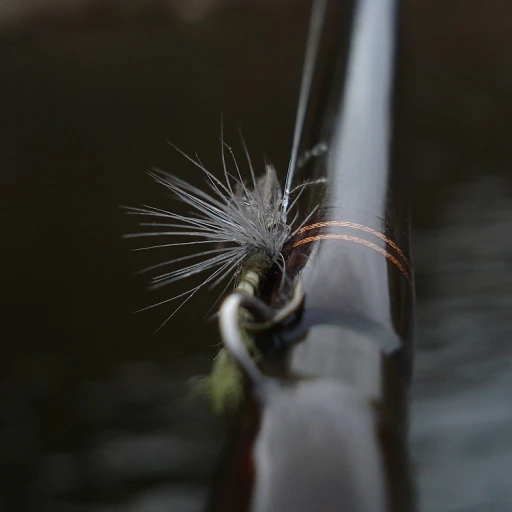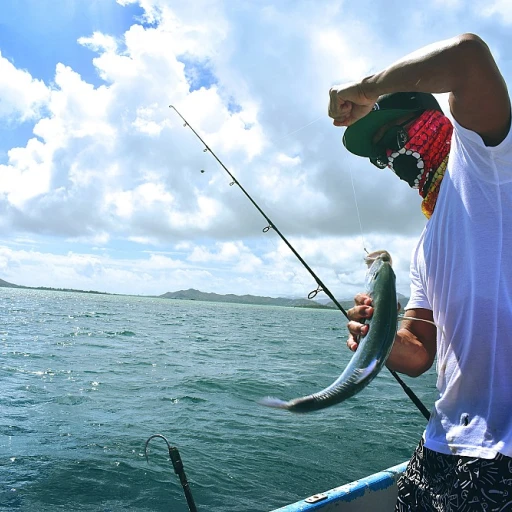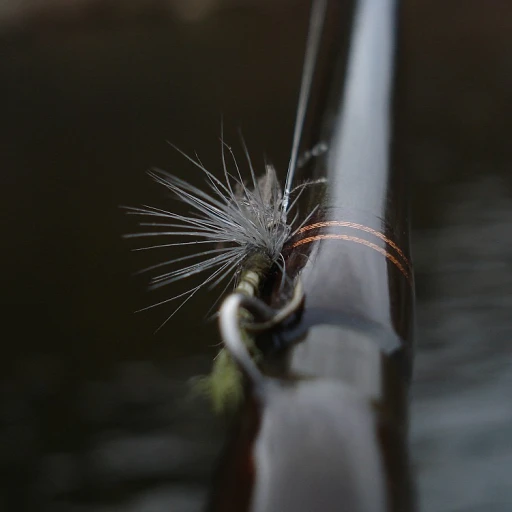
Understanding Grass Carp
Diving into the World of Grass Carp
One of the fascinating species making waves in recreational fishing circles is the grass carp, scientifically known as Ctenopharyngodon idella. With its origins in Asia, this fish has been introduced into various waters for its remarkable ability to control aquatic vegetation. Characterized by a voracious appetite for certain plant matter, grass carp are celebrated for their contributions to aquatic management, especially in environments plagued by excess plant growth.
Grass carp are sometimes referred to as white amur. These fish are primarily stocked into ponds and lakes on account of their efficiency in reducing unwanted aquatic weeds, playing a pivotal role in maintaining the ecological balance of water bodies. They are particularly effective in the management of aquatic weeds and can transform waterways that are choked with vegetation into healthier ecosystems.
The role of grass carp in fisheries is both strategic and conservation-centric. Given their unique feeding habits, grass carp are often employed in initiatives focused on plant control without the use of chemicals. Although they are known for their ability to limit the growth of aquatic plants, managing their population and impact is crucial to prevent potential ecological disruptions.
It’s important for anglers to distinguish between diploid and triploid grass carp. While both can be used for weed control, triploid grass carp are sterile and are often a preferred choice for stocking as they do not reproduce, alleviating concerns about overpopulation. Many states require a special permit for stocking these fish, underscoring their role in sustainable fish-wildlife integration.
Where to Find Grass Carp for Sale
Discovering Where to Purchase Grass Carp
Finding a reliable source to purchase triploid grass carp can be a pivotal step in effective fish and aquatic plant management. These sterile fish, scientifically known as ctenopharyngodon idella, are especially popular among anglers for their role in controlling aquatic vegetation within ponds and lakes. There are several avenues one can explore to obtain grass carp, each with its unique benefits and challenges:- Fish farms: These establishments specialize in breeding and selling various fish species, including sterile fish like triploid grass carp. Buying directly from a fish farm ensures the health and quality of the fish. Many fish farms offer delivery services, making it convenient to stock your pond or lake.
- Wildlife service programs: Some states offer programs through their wildlife service departments that provide grass carp for stocking purposes. These programs can be a cost-effective option and often include guidance on proper management and stocking techniques for fish-acre management.
- Aquatic management companies: These companies provide comprehensive solutions for aquatic vegetation control and often offer grass carp as part of their services. Engaging with professionals can ensure a balanced ecosystem and plant control in your waterbody.
Benefits of Using Grass Carp in Recreational Fishing
Why Grass Carp Can Elevate Your Angling Experience
In recreational fishing, the use of grass carp offers multifaceted advantages, creating an enriching experience both for avid anglers and ecological enthusiasts. These fish, also known as ctenopharyngodon idella, play a notable role in aquatic weed control, aiding in achieving a balanced ecosystem.
Grass carp are effective at controlling invasive aquatic plants, which can otherwise monopolize resources in water bodies like lakes and ponds. By introducing grass carp into these environments, anglers can manage excessive aquatic vegetation without resorting to chemical solutions. The efficiency of these fish lies in their special adaptation to consume a wide variety of plants.
Another remarkable benefit of using grass carp is their nature as sterile fish, specifically the triploid grass carp. Due to their genetic modification, they cannot reproduce, which is essential for maintaining a controlled environment without the risk of overpopulation. This ensures that fish management efforts remain in balance with both recreational needs and ecological mandates.
Moreover, the use of triploid grass carp is highly regulated; obtaining permits through proper channels ensures the stocking aligns with state regulations. Responsible fish stocking not only enhances the quality of fishing activities but also contributes positively to the sustainability of local ecosystems.
Finally, integrating grass carp into your angling strategy can transform your fishing trips by making them more productive. Understanding the optimal conditions and timing your fishing trips accordingly increases the likelihood of a successful catch. By controlling plant growth and promoting healthier aquatic systems, grass carp prove to be invaluable in elevating the quality of your fishing excursions.
Challenges in Purchasing Grass Carp
Overcoming Hurdles in Procuring Grass Carp
Purchasing grass carp for recreational fishing can sometimes be challenging due to regulatory requirements and availability constraints. As a species introduced primarily for vegetation management, grass carp are subject to strict controls, primarily due to their potential impact on aquatic ecosystems. One of the primary challenges involves obtaining a permit. Many states require a permit to stock grass carp, ensuring they are used responsibly to control aquatic plants. This is primarily due to the species' ability to consume large amounts of vegetation, impacting the balance in ponds and lakes. To mitigate this, only the sterile, or triploid variety, is often allowed, preventing unintended reproduction and ensuring that their population remains within control. Stocking rates are another factor to consider. Determining the number of triploid grass carp needed for effective weed control depends on several variables, including the size of the lake or pond, the extent of the aquatic vegetation, and the specific management goals. Consulting with a local fish and wildlife service or a fish farm can provide guidance tailored to your situation. Furthermore, sourcing grass carp can be an issue, as not all fish farms offer them due to the special requirements needed to breed and maintain the triploid species. It's crucial to verify that the supplier is credible and understands the complex needs of stocking these unique carp. Additionally, transportation and proper acclimatization of grass carp into their new environment demand careful planning. Stress during transit can impact the health of the fish, and thus their effectiveness in controlling aquatic weeds. Proper introduction into their respective habitats will support their acclimation and functionality as a biological solution to plant control. While challenges exist, understanding the requirements and established regulations can streamline the process, ensuring that grass carp effectively contribute to your fishing adventures and aquatic management efforts.Tips for Successful Fishing with Grass Carp
Maximizing Your Success with Grass Carp
Fishing with grass carp can be a rewarding experience, but it requires some strategic planning and understanding of the species. Here are some tips to help you make the most of your fishing adventures with these unique fish.
- Know Your Water: Understanding the water body where you plan to fish is crucial. Grass carp thrive in environments with abundant aquatic vegetation. Ensure the pond or lake has enough aquatic plants to attract these fish.
- Use the Right Bait: Grass carp are herbivorous, so using plant-based baits can increase your chances of success. Consider using corn, lettuce, or specially formulated carp baits that mimic their natural diet.
- Check Local Regulations: Before stocking or fishing for grass carp, verify the local regulations and permits required. Some states have specific rules regarding the stocking of triploid grass carp for aquatic weed control.
- Timing is Key: Grass carp are more active during warmer months when aquatic vegetation is abundant. Plan your fishing trips accordingly to increase your chances of catching these elusive fish.
- Practice Patience: Fishing for grass carp can require patience. These fish are known for being cautious and may take time to approach your bait. Stay calm and be prepared for a waiting game.
By understanding the behavior and habitat of grass carp, you can enhance your fishing experience. Whether you're managing aquatic vegetation in a pond or simply enjoying a day at the lake, these tips will help you make the most of your time on the water.
Future Trends in Grass Carp and Recreational Fishing
Looking Forward: Grass Carp's Role in Future Recreational Fishing
The world of recreational fishing is constantly evolving, with new techniques and innovative solutions emerging to enhance the experience. Grass carp, known scientifically as Ctenopharyngodon idella, continue to offer substantial benefits, like plant control in water bodies, which makes the fish a vital element in the management of ponds and lakes. To predict future trends, it is crucial to consider various aspects, including the increasing interaction between environmental needs and recreational fishing objectives. As recreational fishermen recognize the dual purpose of grass carp in controlling aquatic vegetation while providing a unique fishing challenge, its popularity is anticipated to grow. Here are some trends to watch:- Integrated Pond Management: As ecosystems face increasing pressure from invasive species and changes in aquatic environments, integrating grass carp as a component of comprehensive aquatic management strategies will become more common. Their ability to manage and control unwanted aquatic plants ensures healthier and more balanced environments.
- Increased Demand for Triploid Grass Carp: With the advantages of the company and management regulations promoting the use of sterile triploid carp, there's a demand shift towards these fish. This shift aids in maintaining the ecological balance without adding to the carp population's challenges.
- Sustainability and Ecological Balance: As the pursuit for sustainable practices becomes mainstream, the use of grass carp aligns with broader sustainability goals. Ensuring that lakes, ponds, and other fishing environments maintain ecological equilibrium will remain a priority across the fishing community.
- Permit and Regulatory Compliance: With differing state requirements and permits often needed for stocking grass carp, understanding and adhering to these regulations becomes integral. This focus extends to how fish farming develops and increases collaboration with wildlife services to maintain the balance between recreational and ecological needs.

